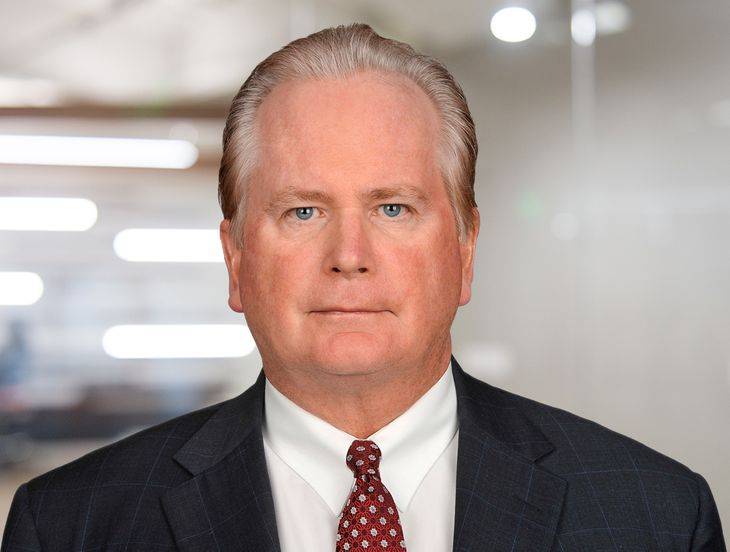Ground Shifts Under California Employers As Governor Signs Flurry Of Significant Legislation
Insights
10.14.19
First-year Governor Gavin Newsom signed some significant pieces of legislation in recent days that will impact employers across California – ranging from a ban on mandatory arbitration agreements, to a complete rewrite to the rules for the use of independent contractors, to a general prohibition on “no-rehire” clauses in settlement agreements. This legal alert highlights the top employment legislation signed into law, including several signed in the last few days leading up to yesterday’s deadline for bills to be signed or vetoed. It also includes links to much deeper dives into these specific measures. California employers will want to read each of these articles closely.
Unless otherwise noted, each of the measures discussed below will go into effect on January 1, 2020.
New Law Prohibits Most Mandatory Arbitration Agreements—For Now
Despite his predecessor vetoing two similar proposals, late last week Governor Newsom signed a bill into law that will prohibit employers from entering into mandatory arbitration agreements for nearly all types of employment law claims in California. Assembly Bill 51 could have significant impacts on California employers across all industries – if it ever goes into effect. There are significant questions around whether the new statute is invalid. We could see it scaled back or completely tossed out before ever being enforced based on an argument that it is preempted by federal law. Legal challenges are inevitable, and will likely require years of litigation before a final resolution.
Check out our in-depth analysis of this new law here. Despite inevitable legal challenges, California employers will need to make a choice before January 1: play it safe and strike all mandatory arbitration agreements or keep the status quo until the inevitable litigation plays out. There are pros and cons to both paths, so work with your employment counsel to figure out which is right for you.
Pay Your Arbitration Fees – Or Else!
Speaking of arbitration, Governor Newsom signed another significant measure into law that raises the stakes for California employers in handling arbitration claims. Under Senate Bill 707, a drafting party that fails to pay arbitration fees and costs in employment or consumer disputes is subject to some fairly significant ramifications.
Specifically, the new law provides that any drafting party that fails to pay the fees necessary to commence or continue arbitration within 30 days after such fees are due is held to have materially breached the agreement and is in default. Potential negative consequences for an employer include not being able to compel the claim to arbitration and being forced to defend the case in court instead, as well potential monetary and evidentiary sanctions. Read on here to get the full details.
California Rewrites Independent Contractor Rules
As we have discussed in detail recently, with his signature on Assembly Bill 5 on September 18, Governor Newsom has completed the year-long overhaul of the state’s independent contractor test. What was once governed by a balancing test that provided breathing room for businesses to deploy contractors with relative ease has now been transformed into a bright-line standard that will challenge businesses across the state when it comes to compliance. Companies will soon face an increased risk of misclassification claims from workers unless they take immediate steps to get in line with the new law.
In 2018, the California Supreme Court adopted the rigid ABC test in Dynamex Operations West, Inc. v. Superior Court. But with Assembly Bill 5, the California legislature took things one giant step further. The newly enacted legislation will solidify the ABC test for virtually all employment purposes, expand its reach (by making it potentially applicable in business to business relationships), and simultaneously grant exemptions to a limited number of industries. This has been the number-one employment issue for California employers since early 2018, so you will want to review our analysis here as it could be a game-changer for your business.
No-Rehire Provisions Are No More In California Settlement Agreements
With his signature on October 12, Governor Newsom put an end to “no-rehire” provisions in employment settlement agreements, a common feature in many such agreements that employers have typically used as a matter of course.
It is very common for employers to settle threatened claims or lawsuits with an agreement that includes a no-rehire provision. These provisions typically prohibit the employee from ever again applying for a job with the company anywhere in the country. If they do, the employer can reject the application and the employee can’t protest that decision. Some agreements go so far as to say that the employer can fire them scot-free if the worker is accidentally hired by any division of the company or a subsidiary.
However, under Assembly Bill 749, these provisions will soon be no more. As of January 1, 2020, settlement agreements can no longer contain any provision that prohibits, prevents, or otherwise restricts an employee from obtaining future employment with that employer. The same is true for the any parent companies, subsidiaries, divisions, affiliates, or contractors. Any such provision that remains in a settlement agreement created on or after that date will be void. Check out our analysis here for more discussion of this significant development.
Timeframe To File Workplace Bias Claims Extended By 2 Years
A big focus of the #MeToo movement over the last several years has been on efforts to increase the statute of limitations for bringing sexual harassment claims. Governor Newsom recently signed a measure into law which will extend the deadline for filing an employment-related administrative complaint with the Department of Fair Employment and Housing (DFEH) by two years.
Under existing law, individual employees have one year to file an administrative charge with DFEH (which is an administrative precursor to filing a civil lawsuit in court). Assembly Bill 9 will extend that administrative filing period to three years, beginning on January 1, 2020. However, while the proposal was couched as a bill aimed at sexual harassment, it actually extends the statute of limitations for all employment claims under the Fair Employment and Housing Act (FEHA), not just sexual harassment claims. Check out our recent post here to learn more details about this significant development.
Governor Makes Sweeping Changes To Lactation Accommodation Requirements
Following San Francisco’s lead, California will soon significantly expand the lactation accommodation obligations of most employers. Senate Bill 142, signed into effect on October 10, includes a detailed list of lactation room requirements, increased liability for failing to provide reasonable break time for employees to express breast milk, and a requirement for employers to adopt and distribute a mandatory employer lactation policy. Read on here to make sure you are on top of all of the new requirements by January 1, 2020.
California’s Groundbreaking Privacy Law Amended With Employer-Specific Changes
Governor Newsom also just signed into law several amendments to the California Consumer Privacy Act (CCPA), two of which will have a direct impact on employers doing business in the state. The new amendments, signed into law on October 11 and taking effect on January 1, 2020, require covered businesses meeting a certain revenue threshold or other criteria to implement policies and procedures that provide consumers – which includes employees – certain privacy rights not previously available under existing law.
The first relevant amendment, Assembly Bill 25, postpones by one year, until January 1, 2021, all the CCPA’s requirements pertaining to employee data except for two: (1) reasonable security measures to safeguard the data, and (2) disclosure of the categories of personal information collected about employees and job applicants and the business purposes for which the information is used. The second relevant amendment, Assembly Bill 1355, excludes from coverage of the CCPA, until January 1, 2021, specified “business-to-business” communications or transactions.
Even though enforcement by the California attorney general does not begin until July 1, 2020, the CCPA compliance deadline is just a few months away. Therefore, employers doing business in California should immediately consider whether the CCPA applies to them and if it does, determine what steps they should take to be ready. Read on here to learn more about the CCPA and these recent changes that impact employers.
California Law Now Prohibits Employment Discrimination Based On Hairstyles
Earlier this year, Governor Newsom signed legislation to provide that prohibited employment discrimination based on race under the FEHA also includes discrimination based on hair texture and protective hair styles. Senate Bill 188 specifically amends the definition of “race” under FEHA to include “traits historically associated with race, such as hair texture and protective hairstyles,” including “braids, locks, and twists.” You will need to review your workplace grooming standards in order to ensure compliance with the law. You can find out more about this new law in our summary here.
Expanded California Sexual Harassment Prevention Training Requirements Delayed Until 2021
At the height of the #MeToo movement, California lawmakers enacted a requirement that all employers with five or more employees would need to provide sexual harassment prevention training to all employees by January 1, 2020. However, in response to outcry from the business community, Governor Newsom signed into effect a law last month extending the deadline for employers to provide the newly required sexual harassment prevention training to January 1, 2021.
At the prompting of the business community, the state legislature introduced and passed Senate Bill 778 to make some needed clarifications to the new sexual harassment prevention training law. Primarily, SB 778 delays the changes made by SB 1343 – one of the many #MeToo laws passed in the 2018 legislative session – so employers will have an additional year to get up to speed with and comply with the training requirements. Read more about this delay here because 2021 will sneak up on you before you know it.
Conclusion
This year may turn out to be one for the record books when it comes to significant employment legislation in California. And that’s saying a lot, because California is no stranger when it comes to pushing the envelope with employment laws. But with such monumental shifts in California public policy this year, the laws enacted in 2019 may very well top them all.
Governor Newsom has already proven himself to be far more progressive than his predecessor Governor Brown, as Newsom signed several significant bills into law that had been previously vetoed by Brown – several of which had vetoed multiple times. This changing landscape may very well be the “new normal” for California employers in the Newsom era.
For more information about these or any other legislative developments, contact your Fisher Phillips attorney or one of the attorneys in any of our five California offices:
Irvine: 949.851.2424
Los Angeles: 213.330.4500
Sacramento: 916.210.0400
San Diego: 858.597.9600
San Francisco: 415.490.9000
This alert provides an overview of specific changes to state law. It is not intended to be, and should not be construed as, legal advice for any particular fact situation.
Copyright ©2019 Fisher Phillips LLP. All rights reserved.
Related People
-
- Anet Drapalski
- Partner
-
- Benjamin M. Ebbink
- Partner
-
- James C. Fessenden
- Partner
-
- Usama Kahf, CIPP/US
- Partner
-
- James J. McDonald, Jr.
- Partner
-
- Tyler Woods
- Partner
Service Focus
- Consumer Privacy Team
- Privacy and Cyber
- Employment Discrimination and Harassment
- Litigation and Trials
- Counseling and Advice
- Wage and Hour





